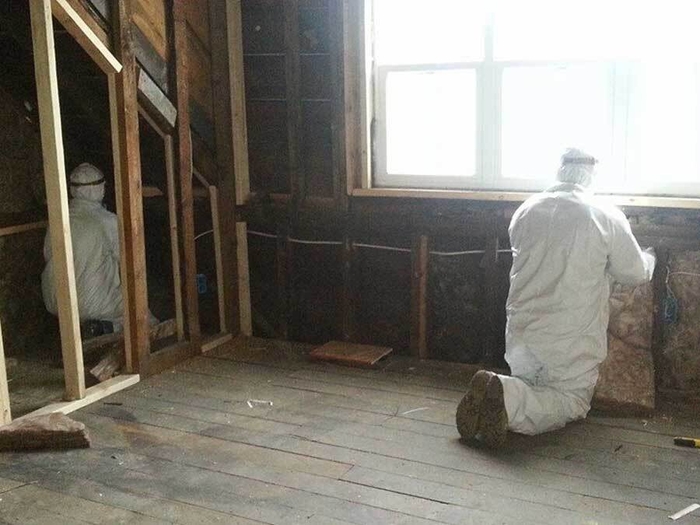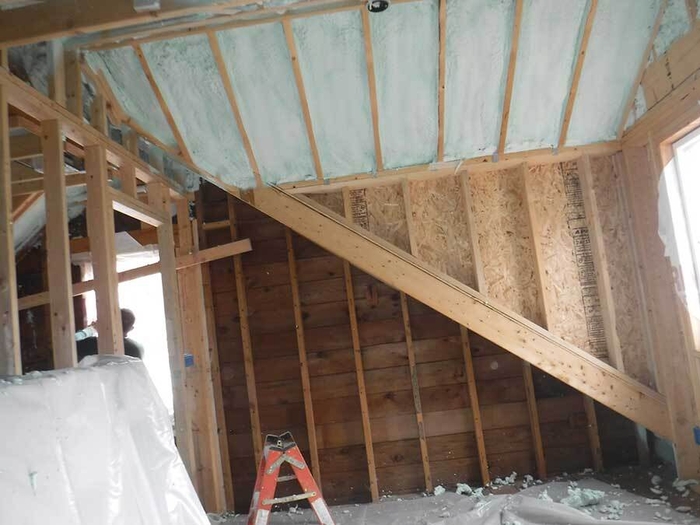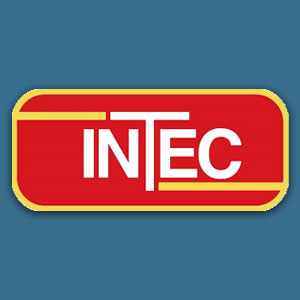When it comes to choosing a residential insulation installation contractor in Milwaukee, you want an expert who understands the unique climate challenges and delivers top-notch service.
Discover the key characteristics of the best insulation contractors and how to ensure your Milwaukee home is properly insulated for comfort and energy efficiency.

Professional insulation contractors installing wall insulation in a home renovation project
Discover the Best Residential Insulation Contractors in Milwaukee, WI
Choosing a specialized residential insulation contractor is crucial for a successful project.
Look for these key characteristics in top Milwaukee contractors:
- Expertise in cold climate insulation techniques
- Knowledge of local building codes and permits
- Proper licensing and insurance
- Excellent customer reviews and references
Some recommended local contractors with high ratings include:
- Intec – Milwaukee
- Wisconsin Insulation Specialists
- Cozy Home Contractors
- Milwaukee Insulation Experts
When evaluating potential contractors, ask about their experience with homes similar to yours and request a detailed quote that outlines the scope of work, materials to be used, and estimated completion time.
How to Ensure High-Quality Insulation Materials for Milwaukee’s Climate
Milwaukee’s cold, humid climate requires insulation materials that can handle moisture and extreme temperatures.
Choosing the right materials is essential for long-term performance and energy efficiency.
Here’s an overview of how Milwaukee’s climate impacts insulation:
| Climate Factor | Impact on Insulation | Material Considerations |
|---|---|---|
| Cold winters | Need higher R-values | Choose materials with excellent thermal resistance |
| High humidity | Moisture resistance | Opt for materials that don’t absorb moisture |
| Temperature swings | Durability | Select materials that maintain integrity over time |
To verify material quality, check for:
- ENERGY STAR certification
- Manufacturer warranties
- Proper R-values for the area
- Moisture resistance properties
Understanding the Best Types of Insulation for Milwaukee Homes
Several insulation types work well in Milwaukee, each with pros and cons.
Here’s a breakdown of the most common options:
| Insulation Type | Pros | Cons |
|---|---|---|
| Fiberglass | Affordable, DIY-friendly | Can irritate skin/lungs |
| Cellulose | Eco-friendly, fire-retardant | Settles over time |
| Spray Foam | High R-value, air sealing | Requires professional install |
Verifying the Credentials and Experience of Insulation Contractors
Don’t skimp on due diligence when hiring an insulation contractor.
Taking the time to verify their credentials and experience can save you headaches down the road.
Follow these steps:
- Check for valid licenses with Wisconsin DSPS
- Verify insurance and bonding
- Look for manufacturer certifications
- Read online reviews and ask for references
| Credential | Why It Matters | How to Verify |
|---|---|---|
| License | Legal compliance, competency | Check with Wisconsin DSPS |
| Insurance | Protects you from liability | Ask for proof of insurance |
| Certifications | Proves specialized training | Look for logos on website, ask contractor |
| References | Insight into real experiences | Request and call recent references |
A reputable contractor will be happy to provide all requested information and answer any questions you may have about their qualifications.
Avoiding Common Insulation Installation Mistakes in Milwaukee
Even experienced contractors can make mistakes.
Knowing what to watch out for can help you ensure a successful insulation project.
Common pitfalls include:
- Skipping the insulation inspection and evaluation
- Not air sealing before insulating
- Improper installation around electrical/plumbing
- Inadequate attic and rim joist insulation
- Forgetting vapor barriers
| Mistake | Consequence | Prevention |
|---|---|---|
| Skipping inspection | Underlying issues unaddressed | Always start with a thorough inspection |
| Poor air sealing | Drafts, higher energy bills | Prioritize air sealing before insulating |
| Improper install techniques | Damage, underperformance | Choose an experienced, meticulous contractor |
Regular check-ins during the project can prevent major problems. Don’t hesitate to ask your contractor questions and request progress updates.

Contractors installing wall and ceiling insulation in a home renovation
Why Choosing the Right Insulation Contractor Matters for Your Milwaukee Home
In Milwaukee, quality insulation is essential for a comfortable, efficient home.
Investing in a top-notch residential insulation contractor pays dividends for years to come.
Some key benefits of proper insulation:
- Lower heating and cooling costs
- Even temperatures and fewer drafts
- Healthier indoor air quality
- Higher home value and marketability
| Benefit | Milwaukee Impact | Real-World Example |
|---|---|---|
| Lower energy bills | 10-20% savings | The Smith family saved $300 annually |
| Even temperatures | Coziness in harsh winters | The Patel home stays warm even on coldest days |
| Healthy air quality | Prevents mold/moisture issues | The Rodriguez family solved recurring mold problems |
By choosing a skilled, experienced residential insulation contractor, you’re investing in your home’s comfort, health, and long-term value.
FAQs
What should I look for in a residential insulation installation contractor in Milwaukee?
Look for proper licensing, insurance, experience with Milwaukee’s climate, and positive customer reviews. Verify credentials and ask for references.
How do I ensure the insulation materials used are suitable for Milwaukee’s climate?
Choose materials with high R-values, moisture resistance, and durability. Look for ENERGY STAR certification and good manufacturer warranties.
What types of insulation are best for homes in Milwaukee, WI?
Spray foam, cellulose, and fiberglass are all good options. Consult with your contractor to determine the best type for your home’s needs.
How can I verify the experience and credentials of an insulation contractor?
Check their license with the Wisconsin DSPS, ask for proof of insurance, and look for manufacturer certifications. Read online reviews and request references.
What are the common mistakes to avoid when installing insulation in Milwaukee homes?
Skipping the initial inspection, poor air sealing, improper installation techniques, and inadequate insulation in key areas like attics and rim joists are common pitfalls to avoid.


